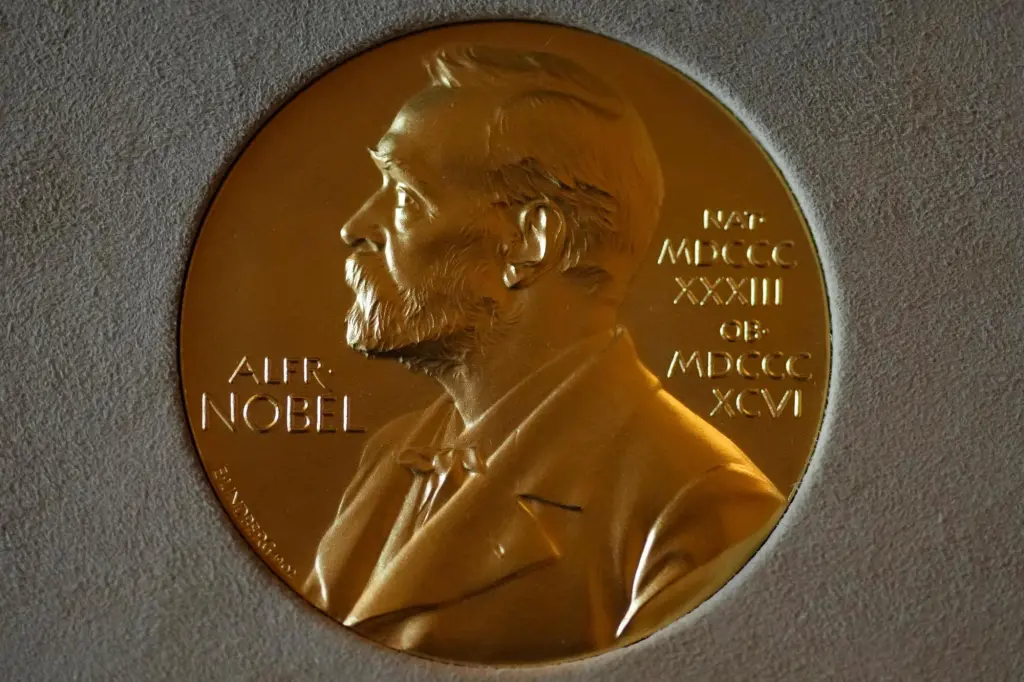Copyright Boulder Daily Camera

All the “will he get it or won’t he?” speculation surrounding the 2025 Nobel Peace Prize obscured news about other important annual prizes bestowed on worthy recipients this Fall. That is a shame, because these less-coveted awards are interesting and entertaining, and maybe even worthy of greater recognition. I am referring, of course, to the 2025 Ig Nobel Prizes, which the journal Nature has called “the highlight of the scientific calendar.” Awarded in Boston/Cambridge every year since 1996, the Ig Nobels recognize science research projects that “first make people laugh, and then make them think.” I offer you several of my favorites today, taking a brief break from the relentless political and moral travesties of our political leaders. The 2025 Ig Nobel Prize in Literature went to the late William Bean, a former professor at the University of Texas Medical Branch, Galveston. Why “Literature?” Bean rigorously measured the daily growth of his fingernails over a period of 35 years and successfully published the results in at least six papers in the scientific literature. His last publication, appearing in the Archives of Internal Medicine, noted that his fingernail growth had slowed considerably with aging: “The left thumbnail, for instance, has varied from 0.123 mm a day during the first part of the study when I was 32 years of age to 0.095 mm a day at the age of 67.” No manicurist was credited in his work. The 2025 Ig Nobel Pediatrics Prize was awarded to Julie Mennella and Gary Beauchamp at the Monell Chemical Senses Center, Philadelphia, for their study of the effect of garlic in the maternal diet on the infant taste and enjoyment of breast milk. In their Pediatrics journal article, they observe that “infants were attached to the breast for longer periods of time and sucked more when the milk smelled like garlic.” Sadly, they did not control for nationality or ethnicity. However, nationality and ethnicity are central in the 2025 Ig Nobel Prize in Physics, awarded to a team based in Italy who undertook a tasty study entitled “Phase Behavior of Cacio and Pepe Sauce.” Published in the journal Physics of Fluids, they “delineate a regime where starch concentrations below 1% (relative to cheese mass) lead to the formation of system-wide clumps, a condition determining what we term the ‘Mozzarella Phase’ and corresponding to an unpleasant and separated sauce.” I am sadly very familiar with the Mozzarella Phase. The authors end their paper with “a scientifically optimized recipe based on our findings, enabling a consistently flawless execution of this classic dish.” Note that they do not call it a “simple recipe.” You have probably not thought much about how much you enjoy shoe racks. Vikash Kumar and Sarthak Mittal from Shiv Nadar University in Delhi think you should. The pair won the 2025 Ig Nobel in Engineering Design for their work on understanding how foul-smelling shoes can negatively affect the pleasure of using a well-designed shoe rack. Their research, “Smelly Shoes – An Opportunity for Shoe Rack Re-Design,” is published as a chapter in the highly specialized book “Ergonomics for Improved Productivity.” Sadly, this book is behind a steep paywall, so I could not find out just how they determined the relative “rankness” of the offending footwear they studied, nor the stink-compromised structural pleasurableness of the shoe rack in question. Finally, the 2025 Ig Nobel Prize in Psychology went to Marcin Zajenkowski (University of Warsaw) and Gilles Gignac (University of Western Australia) for their study, “Telling People They Are Intelligent Correlates with the Feeling of Narcissistic Uniqueness: The Influence of IQ Feedback on Temporary State Narcissism,” published in the journal Intelligence. The authors note that an extreme narcissist usually believes that he/she is also highly intelligent. They examined if the “other direction” also worked, i.e., does telling someone they are intelligent based on an IQ test result elicit increased narcissism? Conversely, does telling someone they are stupid decrease narcissism? “Yes” on the first, but more extreme narcissists are likely to dismiss any IQ test that suggests they are less than exceedingly intelligent as “fake news.” I can think of someone who deserves that last award far more than they do the Nobel Peace Prize. Fintan Steele is an ex-Benedictine monk and priest with a Ph.D. in biology/genetics. He spent most of his life in science communications, including scientific publishing and, most recently, for biopharma and academic centers. He and his husband live in Boulder County. Email: fsteele1@me.com.



